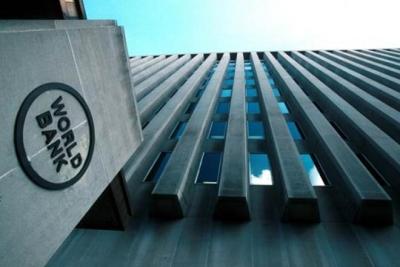LATEST NEWS 
Deal signed for $110m WB fund for Sustainable Enterprise Project
 DHAKA, May 17, 2018 (BSS) - The government of Bangladesh and the World Bank yesterday signed a financing agreement under which the lending agency would provide $110 million to help microenterprises adopt cleaner technologies.
DHAKA, May 17, 2018 (BSS) - The government of Bangladesh and the World Bank yesterday signed a financing agreement under which the lending agency would provide $110 million to help microenterprises adopt cleaner technologies.
The $110 million Sustainable Enterprise Project (SEP) will help about 20,000 microenterprises adopt environmentally friendly practices in the manufacturing and agribusiness sectors.
It will provide loans to microenterprises for innovative, environmentally sustainable technologies and practices.
Economic Relations Division (ERD) Secretary Kazi Shofiqul Azam and World Bank Country Director for Bangladesh, Bhutan and Nepal Qimiao Fan signed the agreement this afternoon on behalf of the government and the World Bank, respectively, at the ERD in the city's Sher-e-Bangla Nagar area.
The credit is from the International Development Association, the World Bank's concessional lending arm, which provides grants or zero-interest loans. The credit has a 38-year term, including a six-year grace period, and a service charge of 0.75 percent.
After signing the agreement, ERD Secretary Kazi Shofiqul Azam said in recent years, the government of Bangladesh has taken concrete steps to promote a greener, cleaner, and more climate-resilient economy.
"This project will contribute to faster and more sustainable growth," he added.
World Bank country director Qimiao Fan said, "Around the globe, we have seen that investing in clean, green, and climate resilient technologies helps countries reduce poverty and achieve sustainable growth."
"The Project will help Bangladesh create quality jobs, improve competitiveness, and boost growth while improving environmental sustainability and resilience to climate change," he added.
Half of the country's population depends for livelihoods on 7 million existing microenterprises. But 90 percent of these negatively impact the environment.
For example, a 2014 survey shows only 6 percent of microenterprises disposed solid wastes properly. The project will help microenterprise clusters use cleaner technologies and shared amenities to reduce pollution and become less vulnerable to climate change.
It will promote basic safety standards, certify eco-labeled products, and introduce new, resource-efficient technologies.
The World Bank was among the first development partners to support Bangladesh following its independence.
Since then the World Bank has committed more than $28 billion in grants and interest-free credits to the country. In recent years, Bangladesh has been among the largest recipients of the World Bank's interest-free credits.


